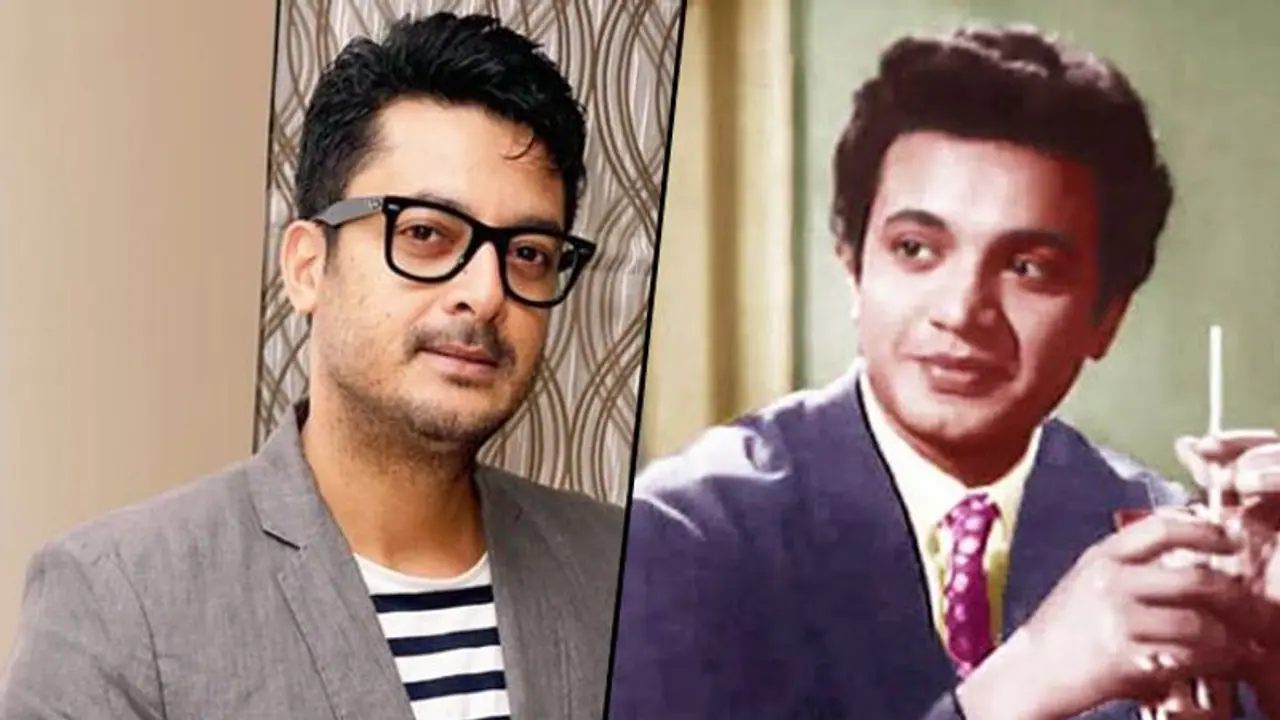Mahalaya, written and directed by Soumik Sen, deals with Akashvani Kolkata's decision to replace broadcaster Birendra Krishna Bhadra with Kumar from their immensely popular show 'Mahisasuramardini'.
Actor Jishhu Sengupta, who is set to play matinee idol Uttam Kumar in his next outing 'Mahalaya', said he has interpreted the legend in his own way, while trying to retain some of his mannerisms.
Mahalaya, written and directed by Soumik Sen, deals with Akashvani Kolkata's decision to replace broadcaster Birendra Krishna Bhadra with Kumar from their immensely popular show 'Mahisasuramardini'.
The move led to a massive public outrage in Kolkata, and Bhadra was reinstated.
'Mahisasuramardini' is a 90-minute audio montage of Chandipath, devotional songs, classical music and acoustic melodrama. The programme is aired every year at day-break on Mahalaya.
Actor Subhasish Mukherjee has been roped in for the role of Bhadra in the film.
'Mahalaya', produced by superstar Prosenjit Chatterjee, is set to the hit the theatres on March 1.
Sengupta, who spent time researching on the developments of 1976 before stepping into the shoes of the matinee idol, told PTI that Kumar was initially hesitant about lending his voice to 'Mahisasuramardini'.
"The makers of the radio show had told him that he was a legend and would be easily accepted by the audience. When his rendition was aired on the occasion of Mahalaya, Kumar instantly knew that something was amiss," he said.
The 'Ek Je Chhilo Raja' actor also said he "interpreted Kumar in his own way, while trying to retain some of the mannerisms synonymous with the matinee idol his witty one-liners and smile".
"The story throws light on the equations Kumar shared with artiste Birendra Krishna Bhadra and singers Hemanta Mukhopadhyay and Pankaj Kumar Mallick. Despite differences in opinion, they had mutual respect for each other," he said.
Sengupta also said that the film unit has recreated the 70s, using microphones and sound recording machines that were prevalent during that period.
"Bumba Da (Prosenjit Chatterjee) left everything to director Soumik Sen's discretion. He did not visit the film set even for a day," the actor, who recently played Gangadhar Rao is Kangana Ranaut's 'Manikarnika', added.
Chatterjee, on his part, said that the film "portrays the anguish, pain and angst of the artists during the 70s".
"We haven't tampered with history. The film is based on documents that were available from that period. I wonder why no film on this subject has been made before," he added.
